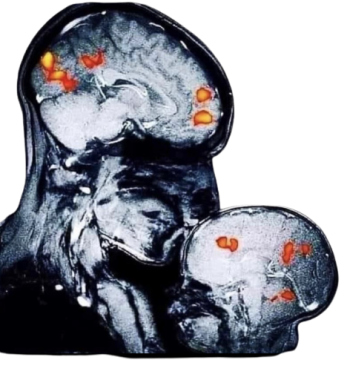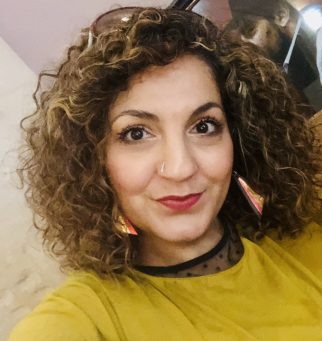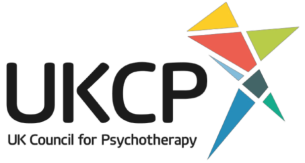Welcome to Jet Simawi Psychotherapy
and Supervision
MA, Dip HIP, HIPC

How Can Psychotherapy Help?
The body expresses what the mind suppresses.
I continue to be deeply interested in understanding the unique struggle each of us undergo throughout our lives, sometimes more than once. In psychotherapy, we are co-creating a relationship, together we craft an emotionally safe environment within which a process of unfolding, unlearning and enabling new self-learning, then an exploration can take place between us. Through greater understanding of our innermost self, our trauma, then together we can begin to allow the possibility for change to emerge within therapy. I am trained and experienced in Body Psychotherapy, this is a crucial part of my therapy work with clients, where our bodies hold many of our untold and unconscious stories awaiting to be heard, processed and gradually integrated.
Many people wonder how and why psychotherapy may differ from counselling and if there is much difference.
There is a very significant and important difference between the two professions.
The analogy and image of an iceberg may be helpful to differentiate between the two.
Counsellors
would usually work with the tip of the iceberg (or what is usually already in
the conscious mind) and already available in our awareness. This is why some
counsellors might offer a more solution-focused, time-limited, CBT and goal-orientated
approach. A more solution-focused counselling approach would be most suitable
for people who are struggling with a specific issue that is well
identified, known and affecting a minor aspect of life.
Psychotherapists
undergo their own personal psychotherapy process during and alongside their
deep, intense and integrative training for about 10 years to explore, to be
curious and co-create a deeper insight and help you to find meaning into what
is below the surface (our unconscious body, mind and Self), where we can begin to make
sense of our relational patterns, our adaptive ways and ‘self-soothing’ habits
which may have become unhelpful and that no longer serve us. Working closely and
deeply with a trained, registered and accredited psychotherapist has demonstrated
a neurological rewiring of our central nervous system, most often this happens
in the minutia of verbal and non-verbal processing we co-create. A psychotherapist
will be a much better relational fit to explore multi-faceted intricacies and complexities
which have made life a struggle; psychotherapists can navigate emotionally and somatically
attend to the deeper complexity, multiple difficulties and presentations and
when a person needs to make sense of their lived-experiences, relationship
orientations and their sense of Self.
Whilst I hold and respect many well-established theories and therapeutic approaches as my underpinning, I consider myself to be a Post-modern Psychotherapist with a creative and holistic approach, enabling me to see you as a whole person, where my multi-faceted and relational stance is unique to each individual client as we navigate the unfolding process and the intricate complexities which can affect our sense of being.
I am particularly interested in complex trauma, existential Self, motherhood and our differences on an intersectional level and inter-human relating and understanding.
n .
I have completed my training last academic year at the University of Bath and now I can work with families as a Systemic Family Psychotherapeutic Practitioner. If Family Therapy is something which might be helpful to you, please let me know.
I am also trained and qualified to offer psychotherapy for those suffering in Pregnancy and Infant Loss.
All my clinical work is supported by a team of professionals, registered and accredited Psychotherapist Supervisors to ensure I am both well supported and challenged to uphold best ethical practise.
I work with adults with a broad range of emotional complexities such as:
Anti-Oppression
Refugees
PoGM
Displacement
Palestine
Uprootedness
Trauma (emotional & relational)
Shame
Vaginismus
Gendered violence
PTSD and CPTSD
Baby and Infant Loss
FGM
Depression
Anxiety
Fertility complexities
Childlessness
Perimenopause
Relationship difficulties & complexities
Menopause
SMBC
Self-harm
War-time existence
Asylum seekers
School Teacher work-related stress
Existential self explorations
Boarding School Syndrome
Difference and Diversity
Privilege and Otherness
Intersectionality of the Self
LBGTQ+
Panic attacks
Anti-racism
De-colonisation
Guilt
Maternal shame
Maternal rage
Maternal ambiguity
Infertility
Secondary Infertility
Relational /marital difficulties
Paternal rage
Paternal shame
Paternal ambiguity
Bereavement (suicide, sudden and terminal)
Life as an orphan
Early childhood experiences
Childhood sexual abuse
Childhood physical abuse
Separation / Divorce
Self
Identity
Attachment styles and their impact
Self exploration and expression
And many other themes.
My location
My private practice is based in Bath, on the ground floor and free parking available nearby. My psychotherapy practice is accessible by public transport within Bath, across from Bristol, Bradford-on-Avon and surrounding areas.
Fees
Psychotherapy Sessions
£75 weekly
Relational Couples Therapy
£90 weekly OR £135 fortnightly
Therapy for Children and Young People
£65 weekly
Get in touch
You are welcome to contact me to arrange an initial session to meet with me and explore the themes which you bring with you, together we can decide if we are a good match and if we would like to continue working together in long-term and open-ended therapy.
I keep a few spaces for those who need to access therapy at a lower fee, we can explore this in the initial session.
All enquires are usually answered within 24 hours, and all contact is strictly confidential and uses secure phone and email services.
Some frequently asked questions
Counselling is usually a good way to help with a current problem; something that can be discussed and - hopefully - resolved within a limited number of sessions. Over a certain number of weeks the understanding of the problem improves and away forward becomes clear. Psychotherapy often describes work that goes a bit deeper, towards more substantial life issues and problems having a deeper effect on the client’s life. Psychotherapy often requires a long-term approach, so the number of sessions can be open-ended.
Everything that is said within the therapy room is private - this is one of the main ways therapy differs from talking to a friend or relative. Once you are comfortable with the format of weekly sessions and the safe space they provide, you will find the freedom to speak in confidence is of great value.
Note that there are some situations where you may be a risk to yourself or others, and there the law requires that I notify an authority; in these cases I may not be able to keep total confidentiality. Breaking confidentiality is extremely rare, and I have a duty of care and I am also bound by UKCP ethics and Code of Conduct for you and any children under 18 and to protect their safeguarding needs. If there is a legal need to break confidentiality, I endeavour to inform the client before- where possible.
Usually I am asked this question by people who are nervous about entering into psychotherapy, or when they are looking for support in coming to see a therapist. This anxiety is understandable, but a key aspect of therapy is that you should feel free to talk about any issues you feel are important to you. Having someone else with you who can be connected those issues makes this opening-up more difficult, so for this reason I do not see clients accompanied by friends or family.
How long a period of psychotherapy lasts will vary from person to person and depend on the depth of the issues they are facing. For some people a couple of sessions helps to bring their problems into focus, and they feel ready to move forward; other problems may require more of an open-ended approach.
Before we begin any work we will agree on the number of sessions we’ll undertake, and at the end of that number review our progress. As long as we both agree further therapy will be of benefit to you, sessions can continue.
I offer short-term psychotherapy sessions from 12 weeks to open-ended and ongoing deeper psychological and psychotherapy explorations.
My aim is to offer a first appointment - known as an initial assessment - within 1-2 weeks. Then we would arrange a set number of counselling sessions to take place at the same time every week, that is convenient for you and where I have availability. How quickly these sessions can begin will depend on the availability of that free ‘slot’.
© Jet Psychotherapy
powered by WebHealer

